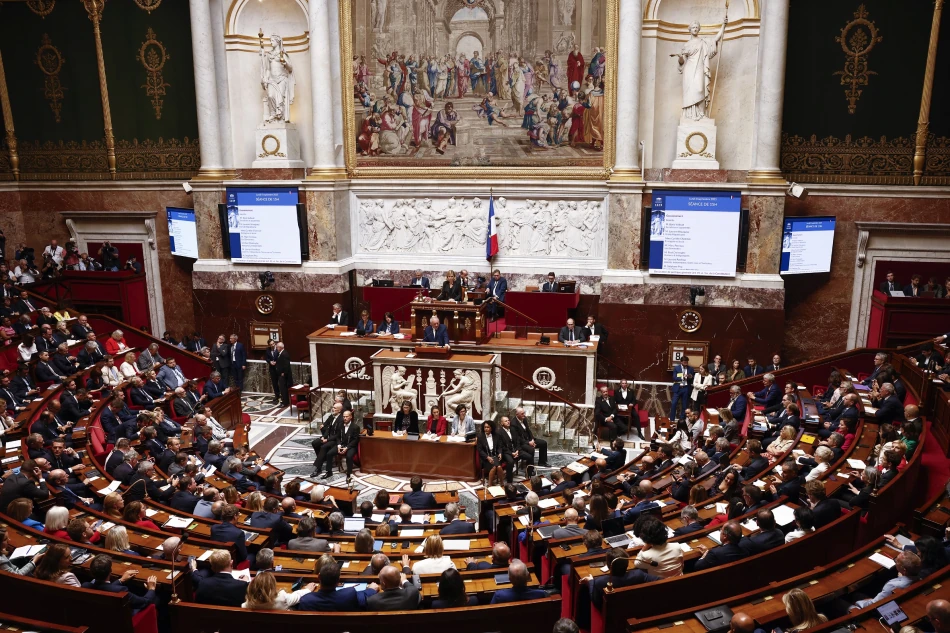
French Parliament Topples Bayrou's Government in Confidence Vote
France's Political Crisis Deepens as Parliament Topples Fourth Government in 12 Months
France plunged deeper into political turmoil as lawmakers delivered a crushing blow to Prime Minister François Bayrou's government, voting 364 to 194 in a no-confidence motion that forces President Emmanuel Macron to find his fourth prime minister within a year. The collapse threatens to paralyze Europe's second-largest economy at a critical juncture when fiscal discipline and economic reforms are desperately needed.
A Spectacular Political Miscalculation
Bayrou's downfall stemmed from what appears to be a dramatic political misjudgment. The 74-year-old centrist politician, appointed by Macron just last December, gambled that lawmakers would support his push for reduced public spending to tackle France's mounting debt crisis. Instead, parliamentarians seized the opportunity to unite against him in a rare display of cross-party opposition.
The overwhelming margin of defeat—a 170-vote difference—signals not just rejection of Bayrou's policies, but broader frustration with Macron's increasingly fragmented political authority. This marks the most severe governmental instability France has experienced since the Fourth Republic's chaotic final years in the 1950s.
Economic Implications for Europe's Powerhouse
Debt Crisis Looms Larger
France's public debt now exceeds 110% of GDP, placing it among Europe's most indebted nations alongside Italy and Spain. Bayrou's failed austerity push leaves this fiscal time bomb ticking, with credit rating agencies closely monitoring the situation. The political paralysis could trigger downgrades that would increase borrowing costs precisely when France needs fiscal flexibility.
Market Uncertainty Grows
French government bonds have already shown volatility amid the political chaos, with the spread over German bonds—Europe's benchmark—widening significantly. Unlike previous political crises that remained largely domestic affairs, this instability occurs as the European Central Bank begins unwinding its massive bond-buying programs, leaving France more exposed to market forces.
Macron's Diminishing Options
The president now faces an increasingly impossible task: finding a prime minister who can navigate France's fractured National Assembly. With the far-right National Rally and left-wing coalition controlling significant blocs, any new appointee will struggle to build sustainable majorities for crucial legislation.
Macron cannot dissolve parliament again until July 2025, leaving him trapped with the current composition until then. This constraint fundamentally weakens his negotiating position and may force him to consider more radical coalition arrangements or technocratic solutions that could further alienate voters.
European Consequences
France's political crisis reverberates beyond its borders at a moment when European unity faces multiple challenges. With Germany also experiencing governmental instability and the UK still adjusting post-Brexit relationships, the European Union's traditional Franco-German engine appears increasingly unreliable.
This instability complicates EU responses to pressing issues including defense spending increases, climate transition funding, and potential trade conflicts with the United States. France's inability to commit to long-term policies undermines European strategic planning and could embolden populist movements across the continent.
The Path Forward
Macron's next appointment will likely need to embrace more pragmatic compromises, potentially abandoning the aggressive fiscal consolidation that doomed Bayrou. This could mean accepting higher deficits in the short term while seeking alternative revenue sources—a strategy that risks further antagonizing European partners already concerned about French fiscal discipline.
The crisis also accelerates discussions about constitutional reform, with some analysts suggesting France's semi-presidential system may be ill-suited for today's fragmented political landscape. However, such fundamental changes require the very political stability that currently eludes the Fifth Republic.
Most Viewed News

 Sara Khaled
Sara Khaled






